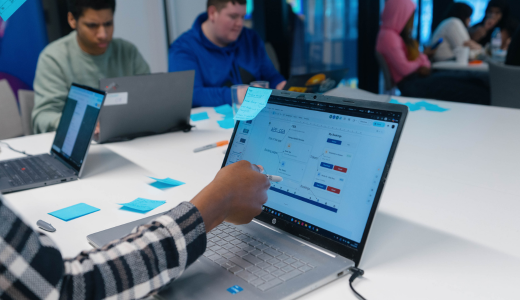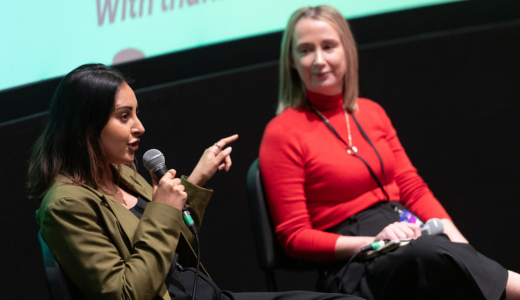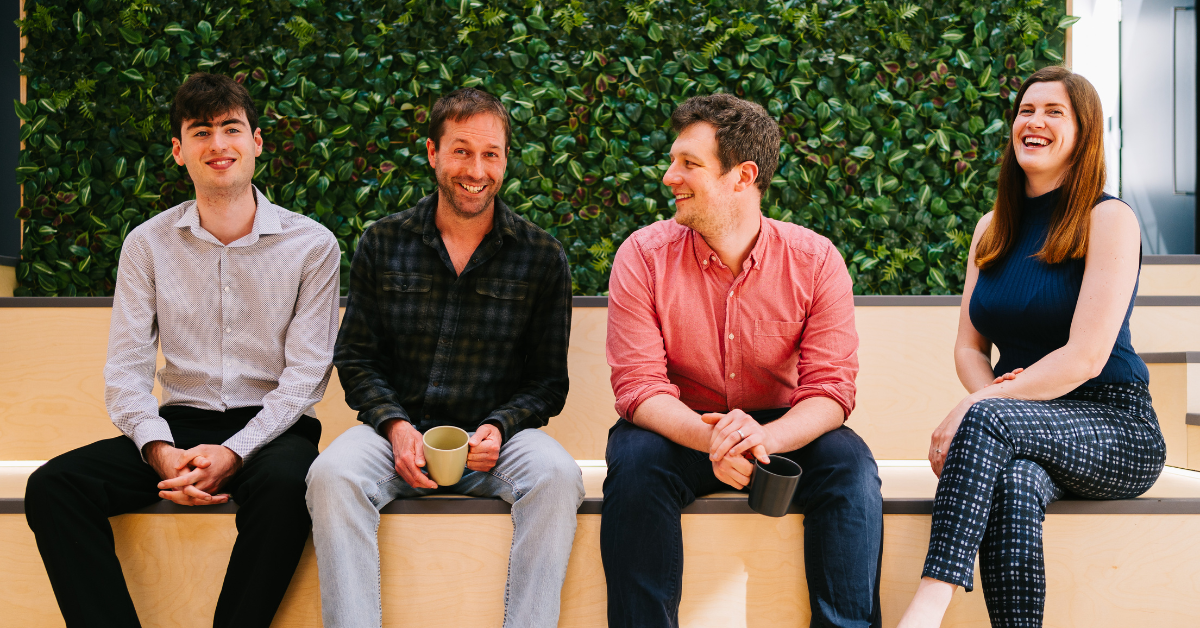
The University of Salford is collaborating with Greater Manchester-based charity, Oldham Personal Advocacy Limited (OPAL), on a two-year knowledge transfer partnership (KTP), aimed at driving digital transformation within the organisation, thanks to support from Innovate UK.
With the help of University researchers, the vision of the KTP is to develop and embed a digital transformation management system to improve the operations of OPAL, a charity that supports people with learning disabilities and autism. This KTP will enable OPAL to improve its response time, scale-up and increase capacity to support more service-users, and target harder to reach groups.
Despite only being in its early days, the partnership has already addressed multiple operational challenges, improving efficiency by transitioning to new digital processes, resulting in an estimated time saving of 5.25 hours per full-time staff member per week. This has, in turn, improved staff to client ratios and led to a 30% increase in income, which had previously remained static for years.
Over the next five years, the outcomes are expected to generate over £660,000 additional income, while driving additional revenue in excess of £260,000 annually at the end of the five years.
Michelle Anderson, Chief Executive Officer of OPAL, commented: “‘As an organisation that’s been supporting adults with learning disabilities for over 40 years, this KTP marks a significant step forward for us. Until recently, we relied on paper-based processes for managing service user information and operations. Moving towards a digital system has been a big cultural shift, and while nothing is changing overnight, it’s been important to us that our employees are part of that process every step of the way. Making sure everyone feels comfortable with the changes and receives the right, tailored training has been a priority.
“It’s been a real pleasure working with the University of Salford and especially, Marc, whose expertise has helped bring these ideas to life and made the technical side much easier to navigate. I’m genuinely excited about what this means for our future, being able to reach and support more people, respond faster, and use modern technology to improve our services. It’s also a chance to show what’s possible for other organisations in our sector, and that feels like a meaningful legacy to build.”
Dr Jonathan Lord, one of the lead researchers from the University of Salford, added: “Like many charities, OPAL has lacked the funding and expertise to modernise and digitalise its operations. A focus on simply “getting the job done” has limited process development and reduced competitiveness with more automated service providers.
“This KTP is transforming OPAL by streamlining operations, improving response times for vulnerable adults, and enhancing its ability to scale and reach hard-to-access communities.”
Professor Marie Griffiths, co-project lead from the University of Salford, continued: “The project has already changed how OPAL thinks and operates, enabling faster service-user responses and greater organisational capacity, with employees now engaging with digital tools at every stage of the service-user journey.”
As part of the partnership, KTP Associate, Marc Harrison, alongside the University’s team, has developed a business model canvas for the charity to provide a clear overview of how it creates and captures value. This alone has enabled the charity to identify new revenue streams in excess of £125,000.
In addition, the University is developing a personalised service user dashboard to encourage a high-performance working environment for all stakeholders, while enabling families and carers to track progress of service users through their ‘developmental journey’ – a digital record of activities and outcomes that evidences personal growth and impact.
Another opportunity currently being explored is the use of facial recognition systems to promote independence for visually impaired users, improving self-supporting skills and their autonomy in society and the world of work.
Jonathan concluded: “OPAL is a fantastic charity that’s doing incredibly meaningful work for its community and we knew we could help expand this work through the adoption of new digital tools to drive efficiency.
“While we are still in the early stages of the project, the tools and new processes we have implemented have already had a considerable impact and we’re only just getting started.”
KTP is a government-funded scheme connecting UK employers with academic researchers; to create and embed new capabilities into businesses so they can achieve their strategic objectives, transform their business and deliver substantial financial returns
For more updates from the University of Salford, visit: www.salford.ac.uk/news.









